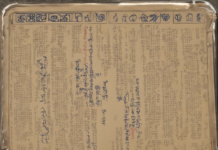Introduction:
In a world brimming with mass-produced items and fleeting trends, embracing the art of collecting is a way to connect with the past, express individuality, and preserve stories for generations to come. Collecting can encompass a vast array of items, from rare stamps and vintage coins to antique furniture, comic books, or even rocks and minerals. Whether you are a seasoned collector or new to the hobby, here are some insights to elevate your collecting experience.
Understanding the Passion Behind Collecting
Why do people collect?
People collect for a multitude of reasons, including a passion for a particular subject, desire to preserve history, investment potential, aesthetic appreciation, or to fulfill a sense of nostalgia. Collecting provides a way to immerse oneself in a subject, connect with like-minded individuals, and curate a personal treasury of objects that hold significance and value.
The Psychology of Collecting
Psychologically, collecting can offer a sense of purpose, accomplishment, and control in a world that is often chaotic and unpredictable. The pursuit of completing a collection or finding that elusive piece can stir excitement and satisfaction, triggering dopamine releases in the brain that reinforce the pleasure of the hunt.
Starting Your Collection
Choosing Your Focus
Selecting a focus for your collection is crucial. Whether your interest lies in vintage vinyl records, action figures, or antique jewelry, choosing a theme will guide your collecting journey and give your collection coherence. Consider your personal interests, budget, and available space when deciding on a focus for your collection.
Research and Education
Before diving headfirst into collecting, take the time to research and educate yourself on the items you wish to collect. Understand their history, variations, market value, and potential pitfalls to avoid common mistakes beginner collectors often make. Joining collector forums, attending trade shows, and reading specialized publications can be invaluable sources of information.
Building and Maintaining Your Collection
Setting Goals
Setting goals for your collection can provide direction and motivation. Whether your goal is to acquire a complete set, own a rare piece, or showcase your collection in a dedicated space, having a clear objective can shape your collecting habits and decisions.
Curating Your Collection
As your collection grows, consider how you will curate and display your items. Proper storage, display cases, and organization are essential to preserving the integrity and value of your collection. Explore different display options to showcase your items in a way that brings you joy and allows for easy viewing.
Building Relationships in the Collecting Community
Connecting with Fellow Collectors
One of the joys of collecting is the opportunity to connect with fellow enthusiasts. Engage with collector communities online and offline to share knowledge, trade items, and build friendships with individuals who share your passion. Networking with other collectors can open up new opportunities to expand your collection and deepen your understanding of the hobby.
Attending Events and Conventions
Immersing yourself in the collecting world by attending events and conventions can be a rewarding experience. These gatherings offer a chance to meet experts, discover new items for your collection, and participate in workshops and seminars that can enrich your collecting journey. Be open to learning from others and exploring different aspects of the hobby.
Preserving the Legacy of Your Collection
Documentation and Cataloging
As your collection grows, it becomes essential to document and catalog your items. Creating a detailed inventory with descriptions, photos, and relevant information can not only help you track your collection but also serve as a valuable resource for future reference. Consider using digital tools or specialized software to streamline the cataloging process.
Insurance and Security
To safeguard your collection against unforeseen events such as theft, damage, or natural disasters, consider insuring your items and implementing security measures in your collecting space. Maintain records of your collection’s value and regularly update your insurance coverage to reflect any changes in the collection’s worth.
FAQs (Frequently Asked Questions)
1. How do I determine the value of items in my collection?
Researching recent sales of similar items, consulting price guides, and seeking appraisals from reputable experts can help ascertain the value of items in your collection.
2. What are some common pitfalls to avoid when starting a collection?
Common pitfalls include overspending, neglecting proper storage and maintenance, impulsive buying, and lack of focus in the collection theme.
3. Is it necessary to specialize in a specific niche when collecting?
While specializing in a niche can offer focus and coherence to your collection, collecting diverse items can also be enjoyable if that aligns with your interests.
4. How can I protect my collection from damage over time?
Proper storage, handling with care, controlling environmental factors like temperature and humidity, and regular maintenance can help prevent damage to your collection.
5. What are some ethical considerations when collecting items with historical significance?
When collecting items with historical significance, it’s important to research their provenance, adhere to ethical guidelines, respect cultural heritage, and avoid supporting the trade of stolen artifacts.
In conclusion, collecting is a rich and rewarding pursuit that transcends mere acquisition of objects. It is a means of storytelling, self-expression, and connection with the world around us. By approaching collecting with passion, knowledge, and respect, you can create a meaningful collection that reflects your unique interests and values. Embrace the journey of collecting, for in each item lies a tale waiting to be discovered and cherished for years to come.












